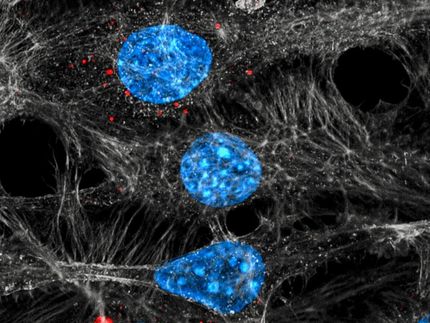Roche: reduce the need for mastectomies in women with inflammatory HER2-positive breast cancer
Advertisement
New data show that the addition of Herceptin (trastuzumab) to chemotherapy prior to breast cancer surgery (neoadjuvant therapy) completely eradicates tumours in nearly three times as many women with inflammatory HER2-positive breast cancer compared to chemotherapy alone. Inflammatory breast cancer is a rare, but highly aggressive form of the disease - the tumours spread quickly, often leading to the need for total mastectomies, and it has a worse outlook than other breast cancers. These results are particularly significant as treatment with Herceptin in this setting may actually lead to more breast conserving surgery and most importantly to potentially improved survival.
HER2-positive disease is diagnosed in up to 30% of all breast cancer cases.1 It demands special attention because the tumours are typically fast-growing and there is a high likelihood of relapse. Neoadjuvant therapy is administered to patients to help make inoperable tumours shrink and become removable, thus promoting breast conserving surgery.
The results from the NeOAdjuvant Herceptin (NOAH) study demonstrated that Herceptin plus chemotherapy led to the complete disappearance of the tumour in the breast (a pathological complete response to treatment) in nearly three times as many patients with inflammatory breast cancer (55% vs. 19%, p=0.004) compared to chemotherapy alone.2 Furthermore, the combination led to complete disappearance of the tumours from both the breast and the lymph nodes (a total pathological complete response to treatment) in 48% of patients, compared to only 13% of those who received chemotherapy alone (p=0.002). The treatment was well tolerated with acceptable cardiac safety. The trial is ongoing and event-free survival data are maturing.






















































